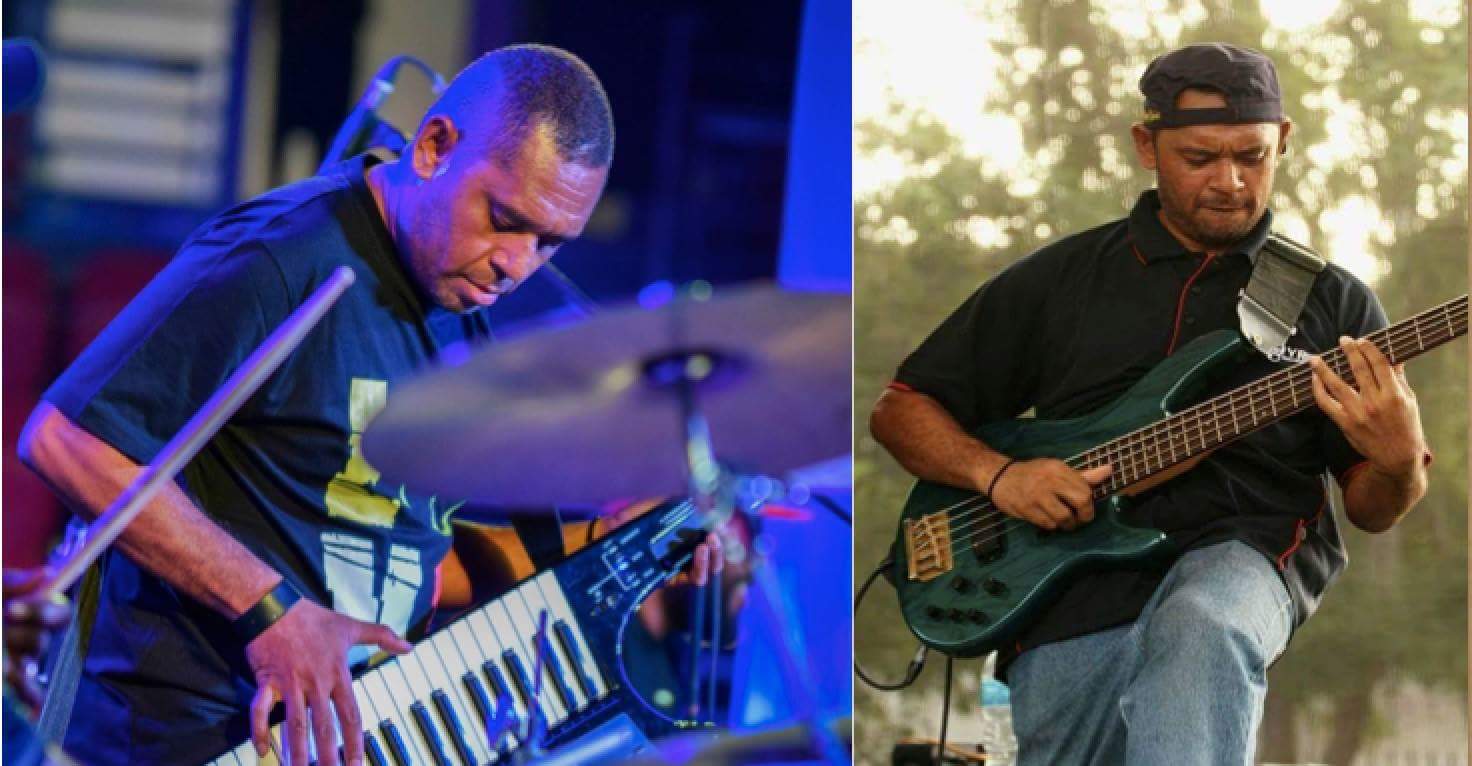Within music circles in Papua New Guinea and the region, Richard Mogu, is considered to be among the finest.
Despite having worked on various important projects that defined PNG music, over the years, the multi-skilled musician from Mailu in the Central Province, keeps his personal and professional achievements much to himself.
In fact, not many people outside of his circles know about his achievements. This is primarily due to his principles of discipline and hard work.
Richard is a craftsman in every sense of the word. He practices and hones his skills not for recognition or fame.
“I think the most important thing is to be yourself and not try to be someone else.
“You should never accept mediocrity. Never say ‘that is enough. You have to practice your craft even without praise or recognition…”
Richard Mogu was born in Iruna Aid Post in Abau District. From an early age, he was surrounded by people who played music or were involved in some way with music.
His mother wrote choruses for their church and his uncles played guitars at village gatherings.
“My uncles used to travel to Milne Bay province and bring back Suau language songs and teach us. In any village, I guess, the first instrument you would come across would be the guitar.
“So I started playing the guitar and also learned playing the ukulele.”
At Passam National Nigh School in East Sepik, his first real performance as a bass player came when his fellow students were searching for one. At the time his only experience was playing to bass patterns on a stereo using an acoustic guitar.
“I got called in for a one day rehearsal and I was sweating!”
By Grade 12 at Passam, music teacher, the late Yawi Yambon who was instrumental in forming the band, Tumbuna, worked with Richard to develop him as a student.
“There were many music students and I think, he saw some talent in some of us.”
Then the time came to apply for university. While his accountant dad was adamant that Richard apply for a course that would get him “a real job,” Richard chose his own path.
“I put down my choice to go to arts school, much to the shock of my parents. So My dad said, son, you’re on your own.”
For Richard, this was a challenge he took on. Between 1992 and 1994, Richard and a few others formed the ‘Clansmen’ – a band that would later attract attention from music producer, Greg Seeto from Pacific Gold Studios.
“I was still in school and doing roadie work. We were backing up PGS musicians. I was already working.”
The thrill of working and earning an income triggered a set of decisions that taught him important life lessons. Richard, abandoned full-time music studies and began working full time as a musician.
“The most important lesson I have learned is to have a good attitude. Because attitude is one of the basic building blocks.
“I flunked myself out of school. That was the wrong attitude. Then I used to get shouted at by the big boys because of that bad attitude.”
Richard says because he dropped out of school, he had to practice hard to gain the level of proficiency required to be successful. That meant spending hours in the Pacific Gold Studios to get the practice time he wanted.
“The second important lesson is commitment to the craft. I used to leave the house on Wednesday and work over the weekend and wait for what they called the graveyard shift.
“Patti Doi was usually the last to leave. And he would leave at about 2am in the morning. Then I’d practice my instrument until 6am.”
As a piano major in school, Richard took the piano principles and applied it to the bass. Then developed it further with technique and style.Today Richard Mogu is known for his slapping and two finger picking – a style that can be heard on his work in the gospel rock band, Dead in Christ other work.
While he has produced his own albums, he has also spent time working with artists like Anslom Nakikus, Pati Doi, O-Shen, George Telek and the late John Wong.
“For many good musicians, people don’t realize that in order to be good, it requires a lot of playing time. You have to be disciplined in order to achieve your goals.
“Talent can make you famous. But good attitude is key. That includes turning up on time for practice.”
Over the years, Richard has worked with various musicians on both local and international projects that involve the use of indigenous Papua New Guinean instruments.
Former Sanguma great, Tony Subam, a traditional wind instrument specialist, was influential in Richard’s leanings towards the Simbu-Eastern Highlands bamboo flute, the Kuakumba. It is an instrument popularised by the Sanguma Band in the 1970s and 1980s and is distinctly Papua New Guinean.
“The Kuabumba is an instrument that can be made into a national instrument like the kundu and garamut.
“It doesn’t have many notes, but with creativity, you can make the Kuakumba sing and talk. It has a quality like a voice.”
Richard says the most important thing about the instrument is its spiritual side. It is a sacred instrument,that was kept hidden from public view. Living in Goroka, gave Richard a deeper appreciation of the humble Kuakumba.
Despite his successes, Richard Mogu remains a very humble and spiritual person.
“Music life hasn’t always been easy. Some people play music for the wrong reasons. You have to do it because it brings you joy.
“For me, it’s the single mindedness and healthy relationships that have helped me walk away from the bad things.
“And the important things like a wife and kids…. When you go away, you have a wife and kids to go back to. It keeps you anchored and grounded.”


